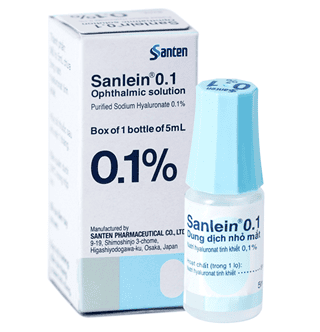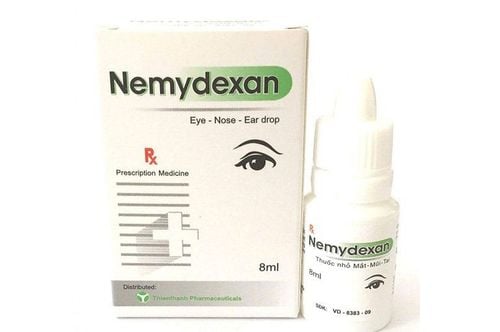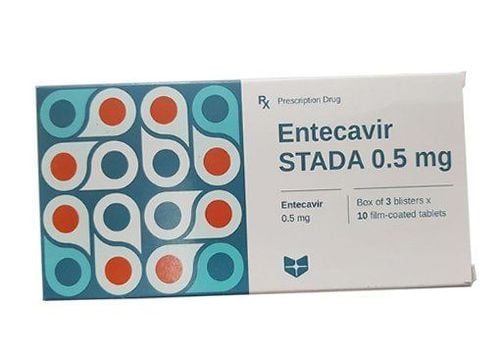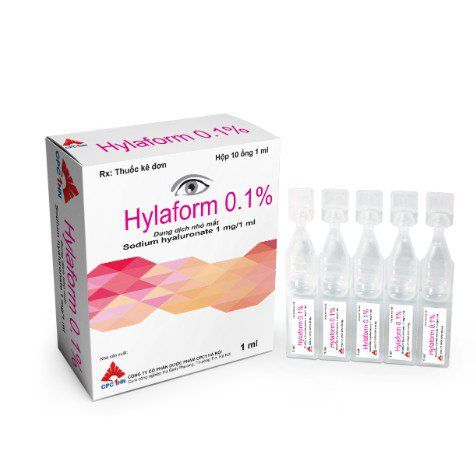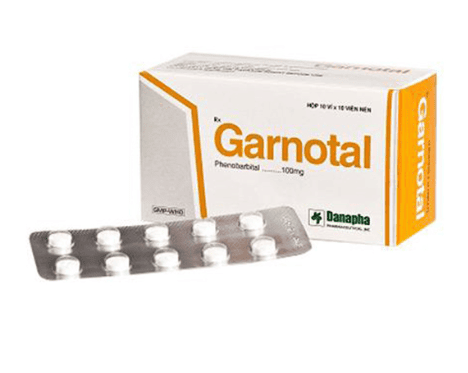This is an automatically translated article.
Unitoba-D is a drug belonging to the group of treating eye, ear, nose and throat diseases, containing the main ingredient is a mixture of Tobramycin and Dexamethasone. Medicines used to treat inflammatory eye conditions such as blepharitis, conjunctivitis, chronic uveitis...For more information on Unitoba-D eye drops, please refer to Unitoba-D eye drops. the following article.1. What is Unitoba?
Unitoba-D drug contains a mixture of 2 main active ingredients, Tobramycin 15mg and Dexamethasone 1mg.The drug is used by eye drops to treat eye diseases thanks to the synergistic effect of two antibiotics and steroids contained in the drug.
Tobramycin is an antibiotic of the aminoglycosides group, which is a pharmaceutical product from the culture of a fungus called Streptomyces tenebarius. This antibiotic has bactericidal effect, the current pharmacological mechanism of the drug is not fully known. Tobramycin inhibits protein synthesis in susceptible bacteria through irreversible binding to the 30S ribosomal subunit. The spectrum of action of the antibiotic Tobramycin covers many groups of gram-negative aerobic bacteria and gram-positive bacteria. The drug is not active against chlamydia, fungi, viruses and most anaerobes. With the dosage form of eye drops, Unitoba treats eye infections caused by susceptible strains of bacteria such as conjunctivitis, lacrimal sac, keratitis, eyelid inflammation, stye...
Dexamethasone is an anti-inflammatory steroid, a synthetic glucocorticoid. The mechanism of the drug is that it binds to receptors in the cell, then translocates into the nucleus of the cell, affecting a number of genes to be translated. Dexamethasone has the main effect of anti-inflammatory, anti-allergic effect, participates in immunosuppression to reduce swelling, reduce edema, inflammation caused by inflammatory agents. In terms of anti-inflammatory activity, this drug is 30 times stronger than hydrocortisone, 7 times stronger than prednisolone. Dexamethasone is well absorbed at the site of application of the drug, including eye drops or topical routes, the drug penetrates into the conjunctiva, bursa, and through the skin.
2. Indications and contraindications of Unitoba
2.1. Indications Unitoba is indicated for the topical treatment of inflammatory ocular conditions that have responded to steroid anti-inflammatory drugs and when superficial bacterial infection of the eye is present or there is a risk of ocular infection.
Pathology of eyelid conjunctivitis, ocular conjunctivitis, keratitis and anterior segment of the eyeball. In the case of patients with chronic anterior uveitis, corneal damage is caused by chemicals, radiation, or thermal burns or foreign bodies. Patients are at high risk of common eye infections caused by susceptible strains of bacteria or when there is a possibility of the presence of dangerous and sensitive bacteria in the eyes of Tobramycin. 2.2. Contraindications Unitoba is not used in the following cases:
Patients with a history of allergy or hypersensitivity reactions to any of the ingredients: Tobramycin, Dexamethasone or other excipients contained in the suspension. Keratoconjunctivitis caused by Herpes simplex, Varicella, Vaccinia, other viruses. Fungal infection in the patient's eye. After the patient removed the corneal foreign body but no complications.
3. Usage and dosage of Unitoba
3.1. How to use Unitoba is used by topical eye drops. The patient washes his hands and drops the mixed solution directly into the treated eye area.
3.2. Dosage Instill 1-2 drops in each affected eye every 4 to 6 hours.
In the first 24 to 48 hours, the dose can be increased to 1-2 drops every 2 hours.
As eye symptoms subside, the patient increases the interval between each instillation.
4. Unwanted effects when using the drug Unitoba
Unwanted effects when patients use Unitoba eye drops include:
Eye swelling, eyelid itching, conjunctival congestion. Glaucoma, increased intraocular pressure, damage to the optic nerve, posterior subcapsular cataract, slow wound healing. Patients with eye infections secondary to prolonged steroid use. Inform your treating doctor about the unwanted effects encountered when using Unitoba medicine.
5. Notes when using Unitoba
Notes when patients use Unitoba eye drops include:
Long-term use of the drug may appear fungal infection of the cornea. Patients need to follow the doctor's instructions on the time to take the medicine, do not arbitrarily drop the drug for many days. Children taking medication when indicated should be supervised and assisted by an adult. Pregnant or lactating women should take Unitoba as directed by their doctor. Unitoba eye drops do not affect the patient's ability to drive or operate machinery. Above is information about the use of Unitoba medicine. Medicines used in ophthalmology to treat eye infections, patients should not self-medicate. The drug can cause unwanted effects if the patient uses it for a longer time than the course, or abuses the drops in an overdose. If you have any questions about Unitoba medicine, please see pharmacists, eye specialists or medical staff for timely help and advice.
Please dial HOTLINE for more information or register for an appointment HERE. Download MyVinmec app to make appointments faster and to manage your bookings easily.




